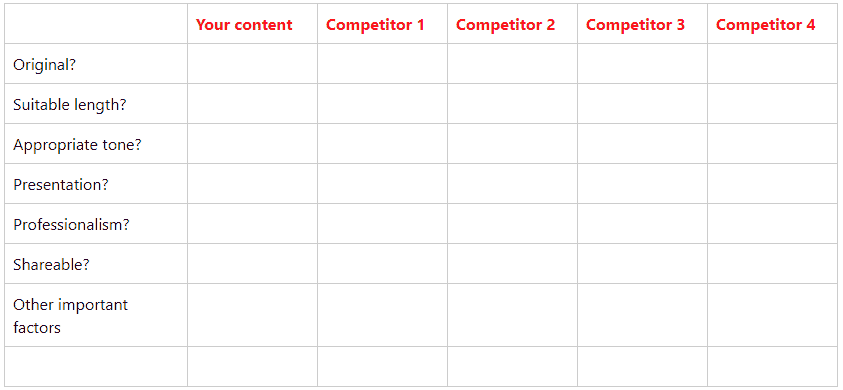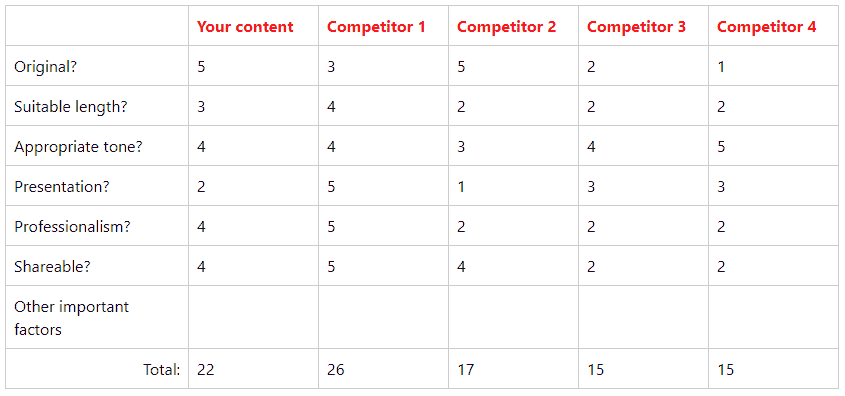My single prediction for 2020 is that a lot will change this year. And the traffic you’ll receive from Google? That’s going to be affected too.
Why more updates?
Setting aside the issue of their ads, Google have one main agenda when it comes to presenting users with search results:
To make sure that people find the best answer to what they’re looking for as quickly as possible.
This combines two factors: quality of content, and speed of delivery.
None of which is exactly a revelation. “Content is king” has been the SEO mantra for longer than I can remember, and you already know that speed is increasingly important to Google.
But there are a number of factors that often hinder Google’s efforts to provide the best possible search results. Obviously there are the websites that try to trick Google by manipulating the signals that they rely on.
But the bigger problem is a deceptively simple one: that so much content on the web is of horrendously poor quality.
So why aren’t Google better at recognising it?
When you (as a person) click on a link and start reading, it takes you a few seconds at most before you get a feel for the quality of what you’re reading. But doing this algorithmically is more complex.
It’s one of those human brains vs. machines things.
And in case you think that Google do a pretty good job of this, think about how many searches you recently carried out where you had to click on a series of different (bad) results before giving up and refining your search.
Google’s battle to separate the high-quality content from the junk is work in progress.
Which is why we’re undoubtedly going to see more algorithm updates.
And unsurprisingly, Google confirmed this at their recent Webmaster event in Zurich:
“Okay but let’s not rock the boat…”
The main reasons that many businesses fail to tackle SEO?
- It appears to be complicated.
- It carries an unknown element of risk.
- Most websites already receive some traffic from Google without trying.
Until now, doing nothing has apparently worked. So why take the risk of possibly breaking it, and ending up in a worse position than where you began?
The reason is that more Google updates are coming.
Without a doubt.
You may choose not to rock the boat, but those waters are going to start getting very choppy around you anyway. Even if you choose to lie on your back and stare at the stars.
How to avoid being hit by the next update
You can’t avoid being hit, but you can probably avoid being hurt by it.
I could tell you to check-up on all your SEO basics – to finally get round to that keyword research, to see what your competition are optimising for, to check your links and so on. But this is just same-old advice that you’re too busy to follow anyway.
So instead I’m going to give you a basic, practical and actionable framework to make sure that your website is ready for the Google updates of 2020.
We already acknowledged that two of the main factors that matter to Google are speed and quality.
Speed is an easy one to check. Just run your home page, a handful of main pages and some blog posts through Google’s PageSpeed Insights tool. Don’t worry too much about the specific scores, but you should be able to tell whether it’s okay or a problem.
And now the other factor. I’m going to show you a quick and simple way to gauge the quality of your content – from the point of view of your competition and also Google.
The simplest content audit you’ll ever see
Step 1: identify your top three or four competitors.
I assume you already know who springs to mind, but remember that this is within the context of the sites you keep seeing in the search results.
Step 2: find their three or four most recent content examples.
General blog posts are ideal, or the closest that you can find to this. But try to avoid any product/service specific help files.
Read the content as objectively as you can, and try to get a balanced view of what’s good or bad about them.
Step 3: create a simple table that looks something like this:
Feel free to add your own criteria, but be careful to only include relevant factors. The focus here is on speed and ease.
Step 4: Fill out the table, using a score of 1 – 5, where 1 is “gosh no” and 5 is “wow…. yes”.
It’s obviously extremely subjective, and what we’re doing here over-simplifies complex values to a simple 5-point score. But what we’ll have at the end is much better than not having any means of gauging these factors at all.
Once you’ve given each a score, add up the figures in each column.
You may end up with something that looks like this:
If so, then according to what we can see here, your content is better than most of your competition. But if you want to beat competitor 1, then you should probably pay attention to the length and presentation of future content.
In this scenario you have a clear direction for future content: make it a little longer and spend some time on making it look good too.
And you also have a basic roadmap for how to improve and optimise your existing content.
This takes over-simplification to a new level…
Let’s be realistic here. Content audits are extremely detailed, and simply skimming the most recent three or four posts and throwing a score out of five at them isn’t exactly scientific.
But it’s better than nothing at all. And considering how serious Google are about understanding the quality of content, having something to measure by gives you a good starting point.
Going back to the analogy of not rocking the boat, you now know that a storm is coming.
Being prepared for it makes a lot more sense than closing your eyes and pretending that everything’s fine.
And patching-up the basics is a lot less painful than trying to stay afloat, hanging on to the broken pieces.
Embrace the upcoming changes that Google are going to throw your way, and ride the waves. See you on the other side.




